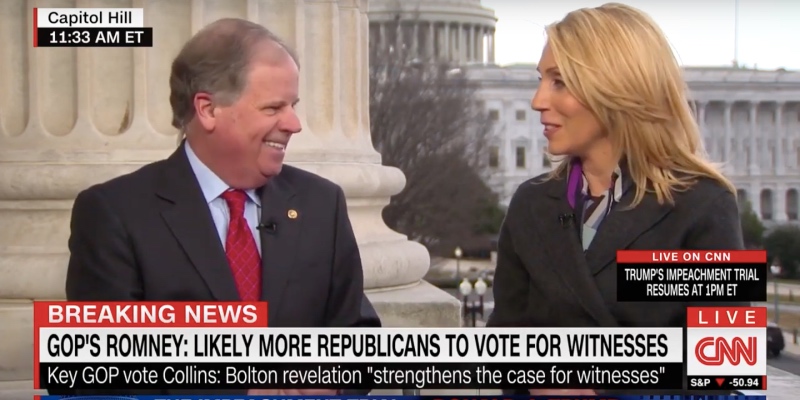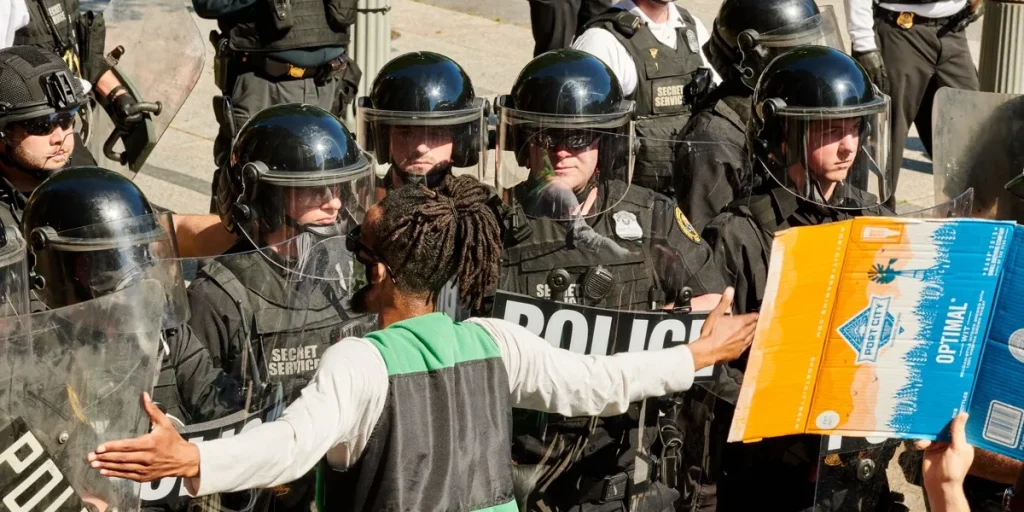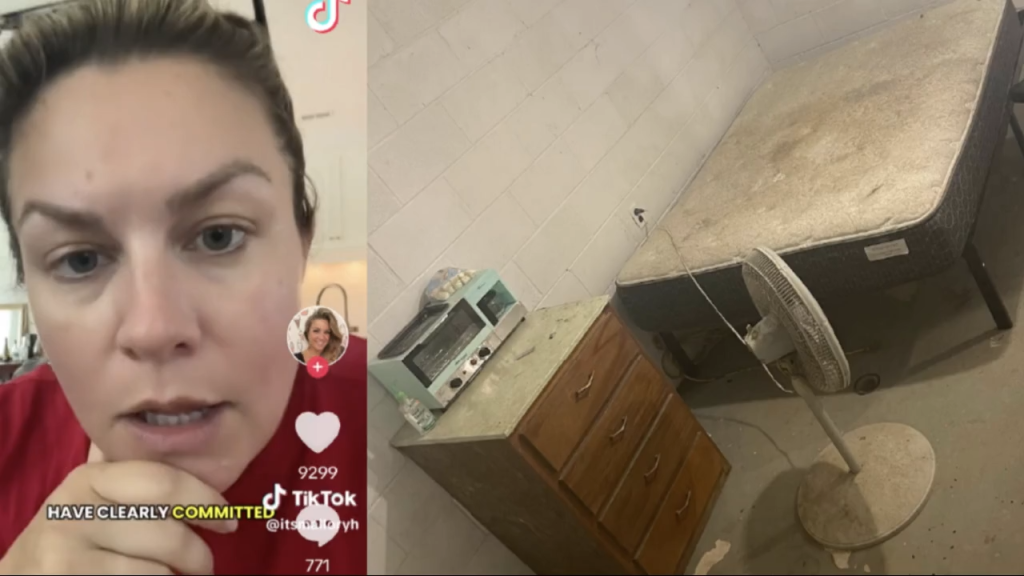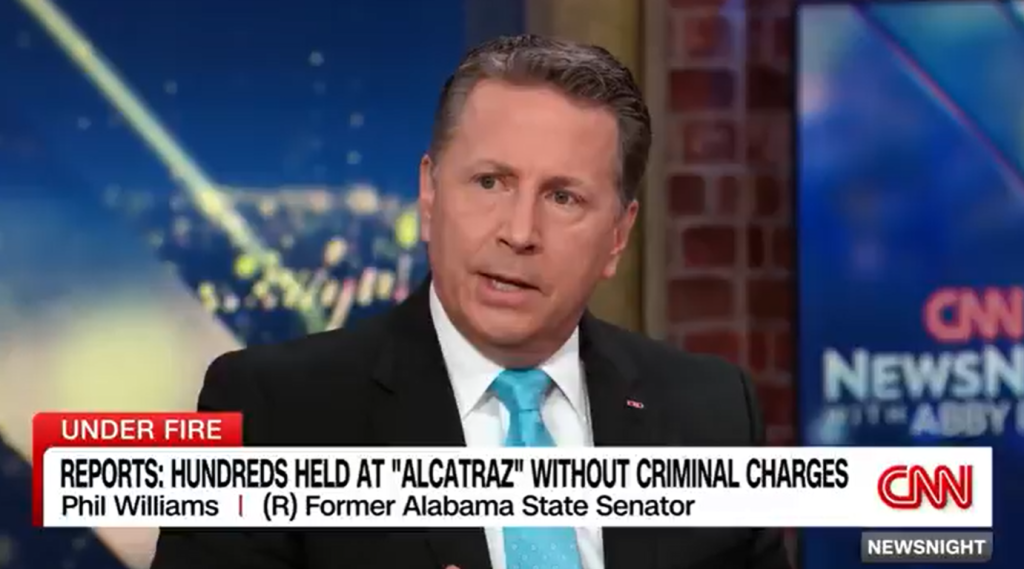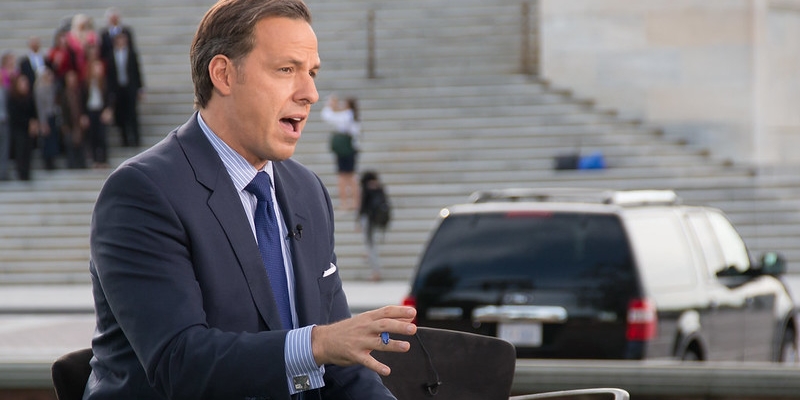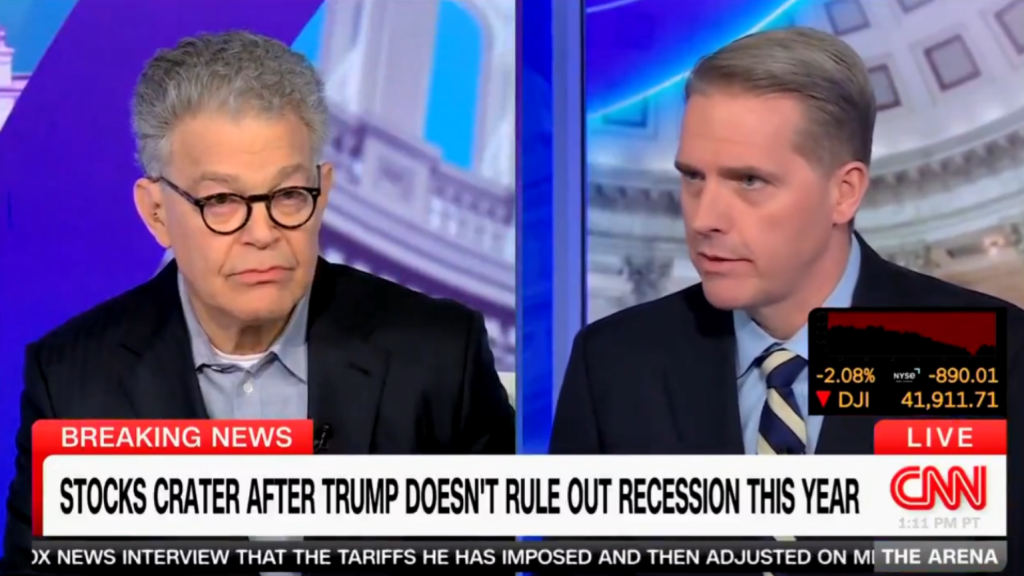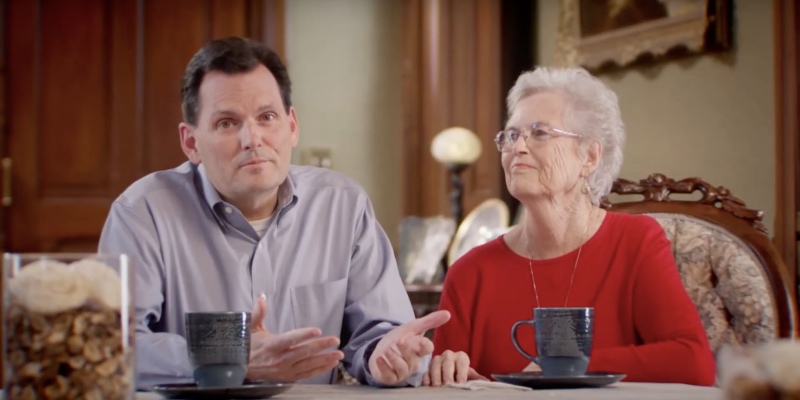Senator Doug Jones (D-AL) on Monday morning sat down with CNN for the first national television interview he has done since the Senate began the impeachment trial of President Donald J. Trump.
Trump is charged by the U.S. House of Representatives with abuse of power on the first impeachment article against him, as well as a second charge of obstruction of justice.
Jones’ interview came in the wake of the leak to the New York Times Sunday evening that former Trump administration National Security Advisor John Bolton has written in a manuscript for his upcoming book that the president told Bolton that Trump wanted to continue freezing $391 million in security assistance to Ukraine until officials there helped with investigations into Democrats such as former Vice President Joe Biden and his son, Hunter. The funds were ultimately released without investigations taking place.
Alabama’s junior senator has been advocating that the Senate call witnesses throughout the impeachment process, and the latest leak has only emboldened him.
Jones reiterated his stance on witnesses, using Bolton as a prime example, in the approximately four-minute CNN interview.
The senator called on the Senate to subpoena Bolton’s testimony. Jones also acknowledged that the House did not have Bolton and other possibly pertinent witnesses testify in the lower chamber.
The CNN host subsequently asked if the House’s process — rushing to impeach Trump without going through the proper procedures to hear from these witnesses — is an issue.
“Well, I think that that’s two different questions and issues,” Jones answered. “Number one, whether the House did it or did not do it, is an important question. I think that’s an important question for article two [the obstruction of justice charge]. But the Senate of the United States has a separate duty under our rules, under the Constitution, to try the case.”
Jones went on to say that precedent from past impeachment trials supports new witnesses being heard by the Senate that were not heard beforehand by the House. He advised that he is trying to separate the two impeachment articles in his mind, meaning he is attempting to weigh evidence related to each one individually. This could mean Jones votes to convict Trump on one article but not the other.
“I guess that’s my lawyer training, when a judge says each count of an indictment stands on its own,” Jones remarked. “So I’ve been looking at them separately and listening to the arguments to see where they are, and I’m going to try to keep those unconnected. Unfortunately, some times, though, when the White House continues to withhold information, it’s hard to keep those separated.”
Earlier in the interview, Jones said he has been hearing from a larger number of constituents opposed to removing Trump from office than he has been from constituents requesting witnesses or the president’s removal.
Jones, however, of his decision making in the impeachment trial recently said, “I’m not trying to necessarily please anyone.”
These remarks may very well remind Alabamians of his infamous line during the Kavanaugh confirmation process, when Jones declared that representing the majority of his constituents is not “the be all to end all.” Jones ultimately voted against the confirmation.
Watch:
Sean Ross is the editor of Yellowhammer News. You can follow him on Twitter @sean_yhn




